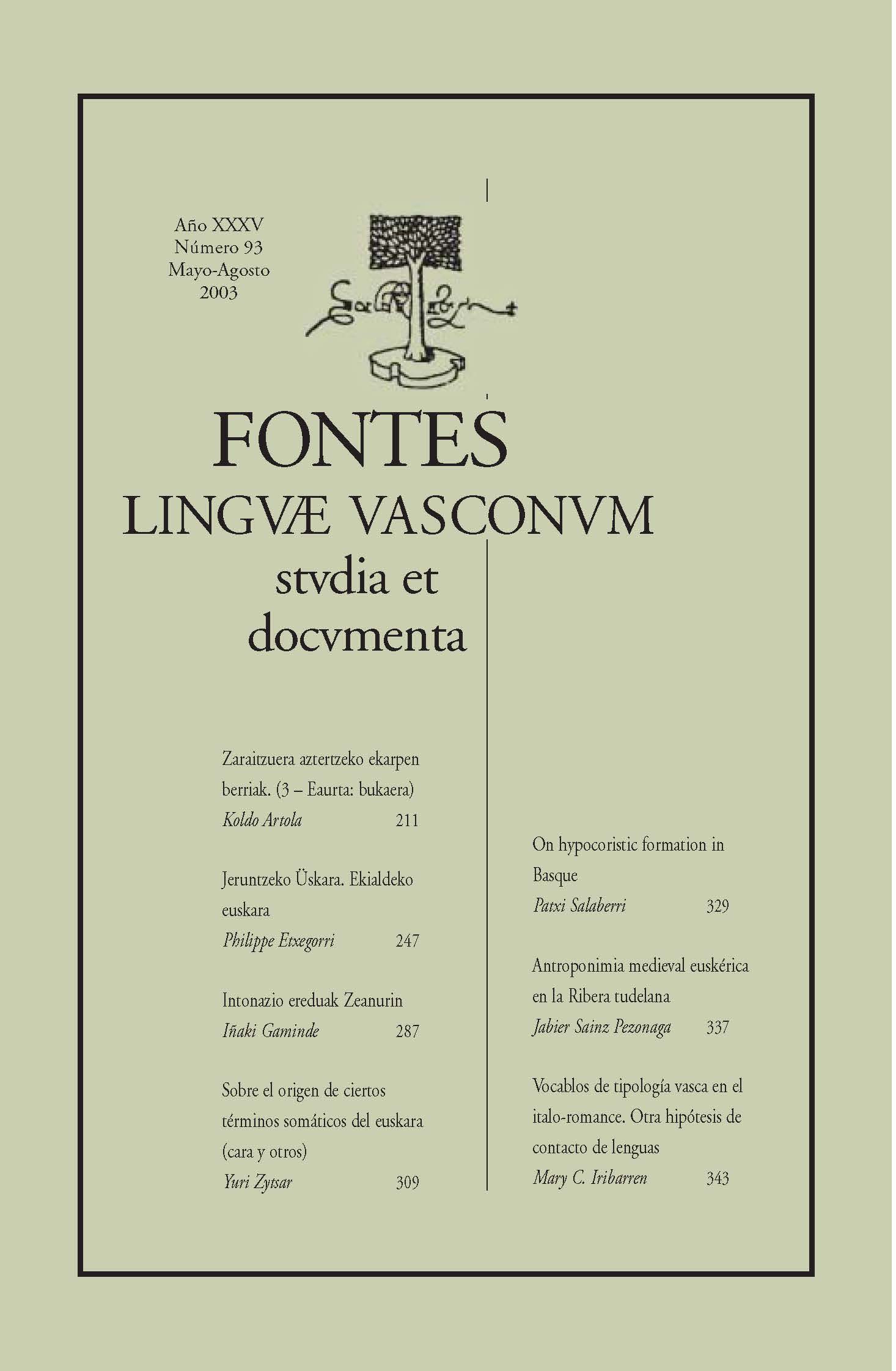Jeruntzeko Üskara. Ekialdeko euskara
Abstract
The non-transmission of the Basque language to modern generations in Iparralde (Northern Basque Country) is an all-too-well-known fact, which can be observed throughout most of the historical territory. The scale of the problem is even greater in peripheral areas, where even the very Basqueness of a Basque-speaking territory beyond the Basque Country could be questioned. Such is the case in Béarn in the Basque village of Géronce, where the phenomenon has seen itself exasperated by rural emigration.
My family, originally from the village of Géronce, has proved no exception. Personally, and given the fact that I was brought up outside of the Basque Country, I began to learn Basque quite late in life as a teenager. What is more, the dialect I came into contact with was the Navarran-Labourde form, or “manech”, as we normally say in my family. Nevertheless, I had the chance to “retrieve” the language of Soule later on thanks to members of my family, and above all my great-uncle Juan.
The present article tries to describe the Basque language used in Géronce. By no means a linguist and in the hope that a decent impression of the language may be gleaned, I have classified the information according to my own criteria: general situation, phonetics, declensions, verbs, grammatical structures and lexicon. All of the examples appearing in italics are authentic.
##about.statistics##
Copyright (c) 2003 Phillipe Etxegorri

This work is licensed under a Creative Commons Attribution-NonCommercial 4.0 International License.







